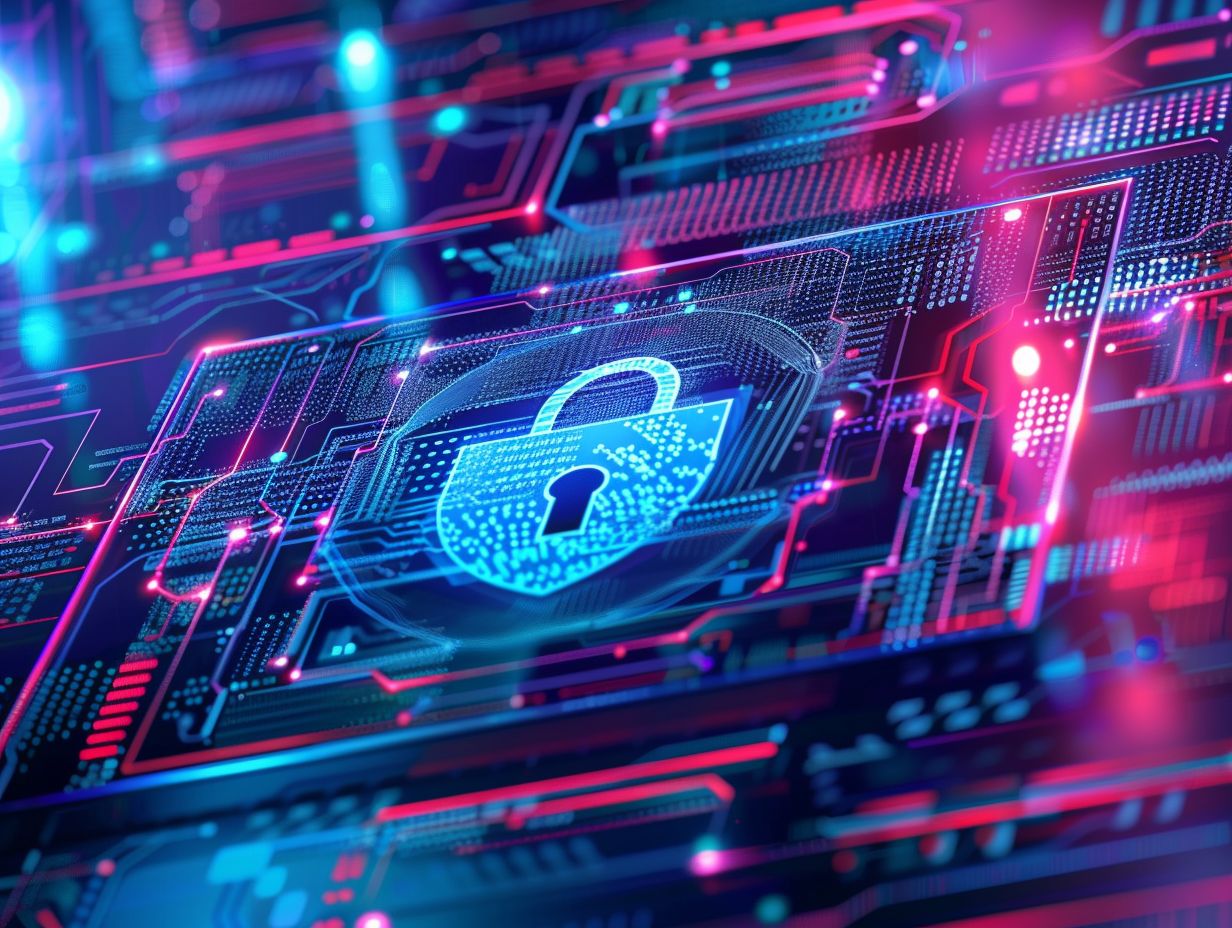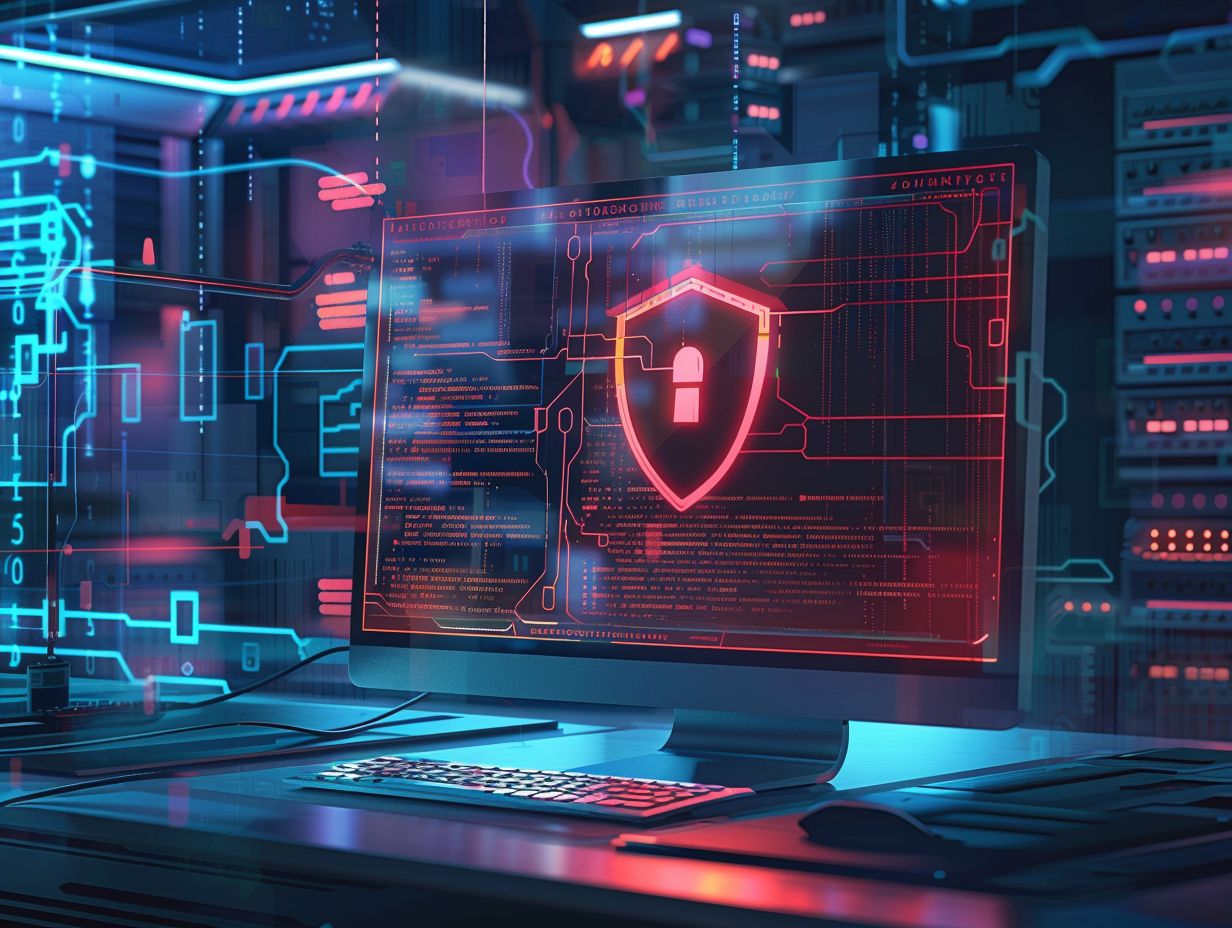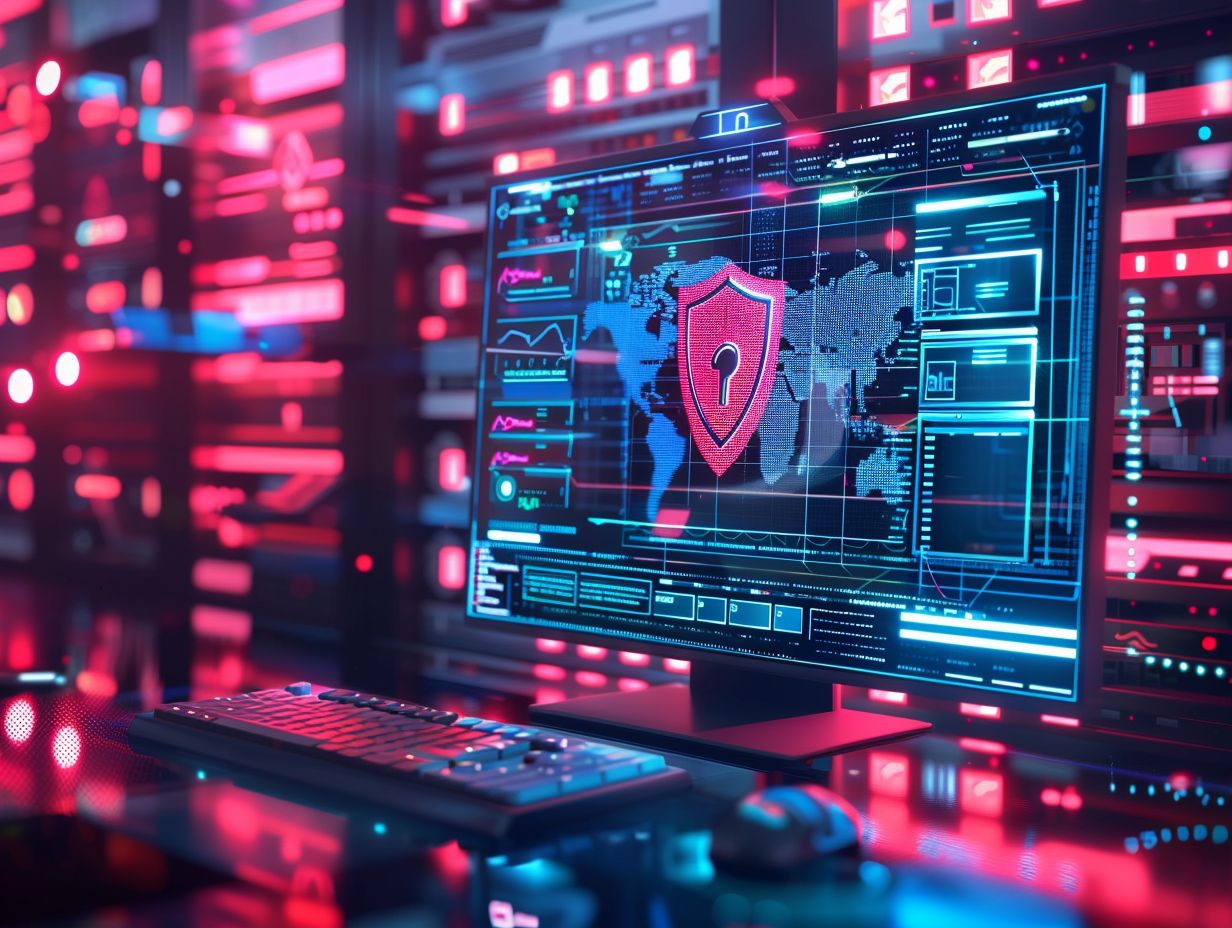Are you interested in pursuing a career in Incident Response and Forensics within the cybersecurity defense sector? This article offers a thorough examination of the job responsibilities, necessary skills, education, and training requirements, employment prospects, potential salary, as well as the difficulties and benefits of working in this ever-evolving field.
Whether you are contemplating a career transition or seeking out fresh possibilities, this detailed guide will furnish you with valuable insights on the essential elements for achieving success in Incident Response and Forensics.
Key Takeaways:

What is Incident Response and Forensics?
Incident Response and Forensics are critical components of cybersecurity that concentrate on examining and handling security incidents. In Incident Response, the focus is on recognizing, confining, and eliminating security risks, while Forensics entails gathering and analyzing digital evidence to comprehend the nature of the incident and prevent future recurrences.
Regarding promptly identifying and mitigating security breaches, Incident Response assumes a pivotal role in reducing the impact of cyberattacks and ensuring business continuity. By employing advanced tools and methodologies, such as threat intelligence and network monitoring, Incident Response teams act swiftly to contain threats and restore systems to a secure state.
Conversely, Forensic Analysis delves deeply into the underlying causes of incidents, offering valuable insights into the tactics employed by attackers and fortifying defenses against similar breaches in the future.
Career Opportunities in Cybersecurity Defense
The field of cybersecurity defense presents a variety of career opportunities for individuals interested in safeguarding organizations against cyber threats. Positions in cybersecurity defense span from cybersecurity analysts tasked with overseeing security events to threat intelligence analysts who collect intelligence on potential threats and vulnerabilities.
Overview of Job Roles and Responsibilities
In cybersecurity defense, you are tasked with a diverse array of responsibilities. These include utilizing state-of-the-art technologies and tools to investigate security incidents and cyber attacks. Your role involves leveraging digital forensics tools and techniques to analyze data and pinpoint security breaches within your organization’s network.
You play a crucial role in actively monitoring networks for any signs of intrusion or unauthorized activities. To bolster your organization’s defenses, you utilize advanced intrusion detection systems and security information and event management tools. Additionally, you are responsible for developing and implementing incident response plans to swiftly address and mitigate cyber threats. Collaboration with cross-functional teams is essential to coordinate cohesive responses. Your experience in conducting forensic analysis is invaluable in determining the root cause of breaches and devising strategies to prevent future incidents.
Skills and Qualifications for a Career in Incident Response and Forensics
To excel in a career in incident response and forensics, you must possess a diverse set of skills and qualifications to effectively manage complex security incidents. These skills encompass the capacity to analyze incident scenarios, comprehend advanced persistent threats, and cooperate with malware analysts to address potential cyber threats.
Technical and Soft Skills Required

In the field of incident response and forensics, you must possess a combination of technical and soft skills to effectively navigate the constantly evolving cybersecurity landscape. Technical expertise in analyzing forensic artifacts and network intrusion artifacts is essential, as is the ability to interpret cyber threat intelligence and demonstrate business acumen in security operations.
Individuals in these roles should have a thorough understanding of cloud security to proficiently manage virtualized environments and cloud-based evidence. Strong communication skills are crucial for collaborating with different teams and stakeholders during investigations, while meticulous attention to detail is necessary for accurately documenting findings and presenting them clearly and concisely.
A solid understanding of digital forensics tools and methodologies is crucial for collecting, preserving, and analyzing electronic evidence in a legally defensible manner, ensuring integrity throughout the investigative process.
Education and Training for a Career in Cybersecurity Defense
Educational qualifications and specialized training are essential components in preparing individuals for a career in cybersecurity defense. Pursuing certifications such as Certified Information Systems Security Professional (CISSP) and acquiring practical experience in threat hunting can greatly enhance your expertise in the field.
Degree Programs and Certifications
Degree programs and certifications in cybersecurity defense offer you comprehensive training on incident response, security incident handling, and computer forensic investigations. These programs will provide you with the necessary knowledge and skills to effectively manage security incidents and protect critical digital assets.
When you pursue these programs, you will have the opportunity to specialize in areas such as cyber threat intelligence, malware analysis, and network security, allowing you to deepen your expertise in the field. Industry-recognized certifications like Certified Information Systems Security Professional (CISSP), Certified Ethical Hacker (CEH), and Certified Incident Handler (ECIH) hold high value. These credentials serve as validation of your proficiency in detecting, responding to, and investigating security incidents, positioning you as a valuable asset within any cybersecurity team.
Job Outlook and Salary Potential
The job outlook for professionals in incident response and forensics appears promising, as there is a growing demand for individuals possessing strong forensic skills and expertise in managing security incidents. The salary potential in this field is competitive, which reflects the crucial role these professionals fulfill in upholding a strong security posture.
Growth and Demand in the Field
In the field of incident response and forensics, you are witnessing significant growth and demand. This trend is driven by the escalating sophistication of cyber threats and the necessity for robust security measures. Organizations are actively seeking professionals who possess the expertise to maintain a solid security posture, coordinate global teams effectively, and implement efficient security controls.
To remain competitive in the ever-evolving realm of cyber security incidents, companies must invest in technical leadership capable of promptly addressing potential threats. Given the continuous advancements in technology, the reliance on a diverse range of data sources for forensic analysis and incident response has never been more crucial. By utilizing these resources efficiently, organizations can enhance their preparedness and facilitate the swift identification and containment of security breaches.
Salary Ranges for Different Roles

The salary ranges for different roles in incident response and forensics vary based on factors such as expertise, specialization, and industry demand. Roles like Cloud Security Analysts, SOC Analysts, and Threat Hunters command competitive salaries due to their critical contributions to enhancing organizational security.
For instance, Cloud Security Analysts are highly sought after due to their expertise in securing cloud infrastructures and applications, with salaries often reflecting the demand for these specialized skills. SOC Analysts, on the other hand, play a crucial role in monitoring, detecting, and responding to security incidents, leading to competitive compensation packages. Security Awareness Officers focus on educating employees about best practices in cybersecurity, which is vital for preventing data breaches and ensuring a secure work environment.
Challenges and Rewards of Working in Incident Response and Forensics
Working in incident response and forensics will present you with a unique set of challenges and rewards. From conducting thorough malware analysis to detecting advanced threats through network forensics, these roles require security professionals like yourself to take on additional responsibilities and maintain vigilance against ever-evolving cyber threats.
Common Challenges and How to Overcome Them
In the field of incident response and forensics, you often encounter common challenges such as navigating the incident response lifecycle, identifying security events, and attracting cybersecurity talent with the necessary technical skills. Overcoming these challenges requires effective communication, detailed technical reports, and a deep understanding of computer-related evidence.
Effective communication plays a crucial role in incident response and forensics as it ensures clear information exchange among team members and stakeholders. Detailed technical reports are essential for documenting findings, procedures, and outcomes of investigations. Understanding how to analyze and interpret computer-related evidence is vital for drawing accurate conclusions and presenting findings.
Cybersecurity talent acquisition can be improved through targeted recruitment strategies focused on identifying individuals with specialized technical skills and a passion for digital forensics and incident response. Developing a robust training program for existing team members can enhance their expertise in technical investigations and report generation.
Satisfaction and Rewards in the Field
In the field of incident response and forensics, you will encounter challenges, but the rewards are substantial for professionals committed to combating cybercriminal attacks. Your role involves providing technical support, collaborating with incident handlers, and working closely with security teams to protect critical data and manage security incidents effectively.
Your responsibilities include gathering and analyzing digital evidence, pinpointing vulnerabilities, and responding promptly to evolving cyber threats. By meticulously collecting and preserving electronic data, you make a significant contribution to enhancing organizations’ cybersecurity posture. Your expertise in incident handling and forensic investigations is crucial for identifying the root causes of security breaches, allowing companies to implement proactive security measures to safeguard against sophisticated cyber attacks in the future.
Frequently Asked Questions
What is incident response and forensics in relation to careers in cybersecurity defense?

Incident response and forensics are two crucial components of a cybersecurity defense career. Incident response involves reacting to and mitigating cybersecurity incidents, while forensics involves investigating and analyzing the cause and impact of these incidents.
What are the essential skills for a successful career in incident response and forensics?
Some of the essential skills for a successful career in incident response and forensics include technical knowledge of computer systems and networks, critical thinking and problem-solving abilities, attention to detail, and strong communication skills.
What are the job prospects for those interested in a career in incident response and forensics?
The job prospects for incident response and forensics professionals are excellent, as the demand for cybersecurity experts continues to grow in response to the increasing number of cyber threats and attacks.
What are the typical job roles in the incident response and forensics field?
Some typical job roles in the incident response and forensics field include incident response analyst, forensic investigator, digital forensics analyst, cybersecurity consultant, and cybersecurity analyst.
What qualifications and certifications are required for a career in incident response and forensics?
A degree in computer science, information technology, or a related field is typically required for entry-level positions in incident response and forensics. Additionally, certifications such as Certified Information Systems Security Professional (CISSP) and Certified Incident Handler (GCIH) can enhance job prospects and salary potential.
What are some common challenges faced by professionals in the incident response and forensics field?
Some common challenges faced by incident response and forensics professionals include staying updated on the constantly evolving cybersecurity landscape, managing high-stress situations, and effectively communicating technical information to non-technical stakeholders.
